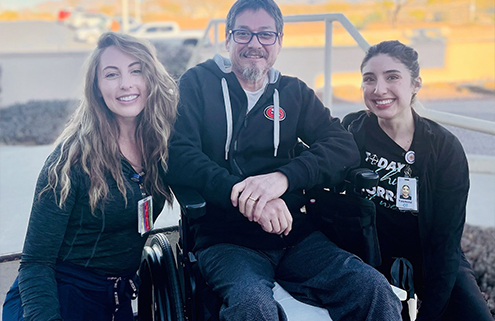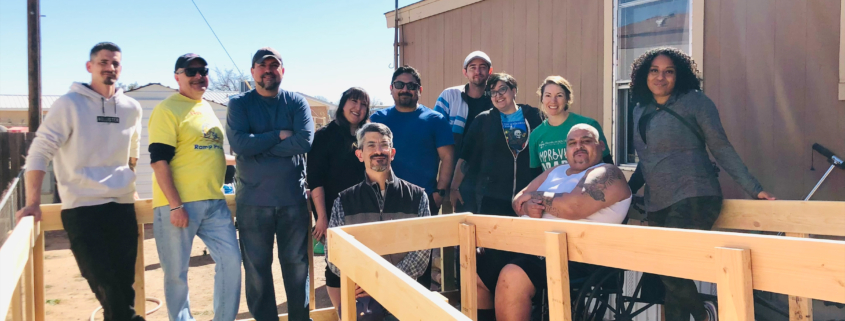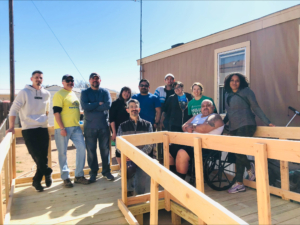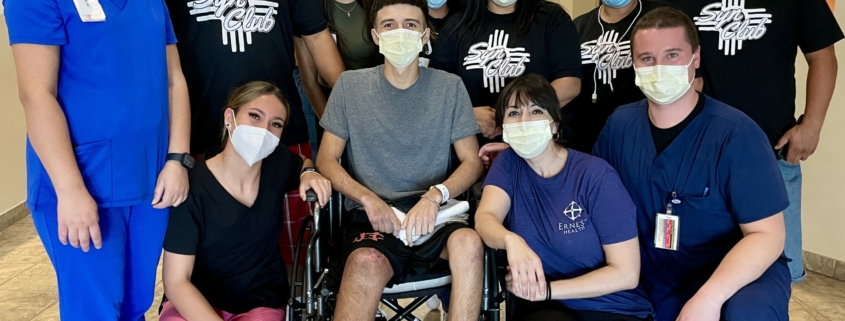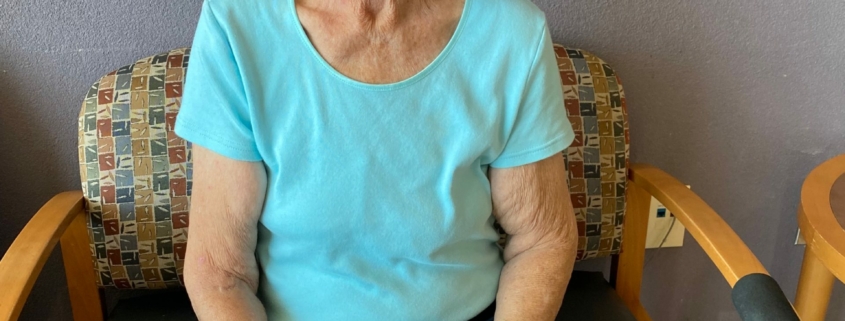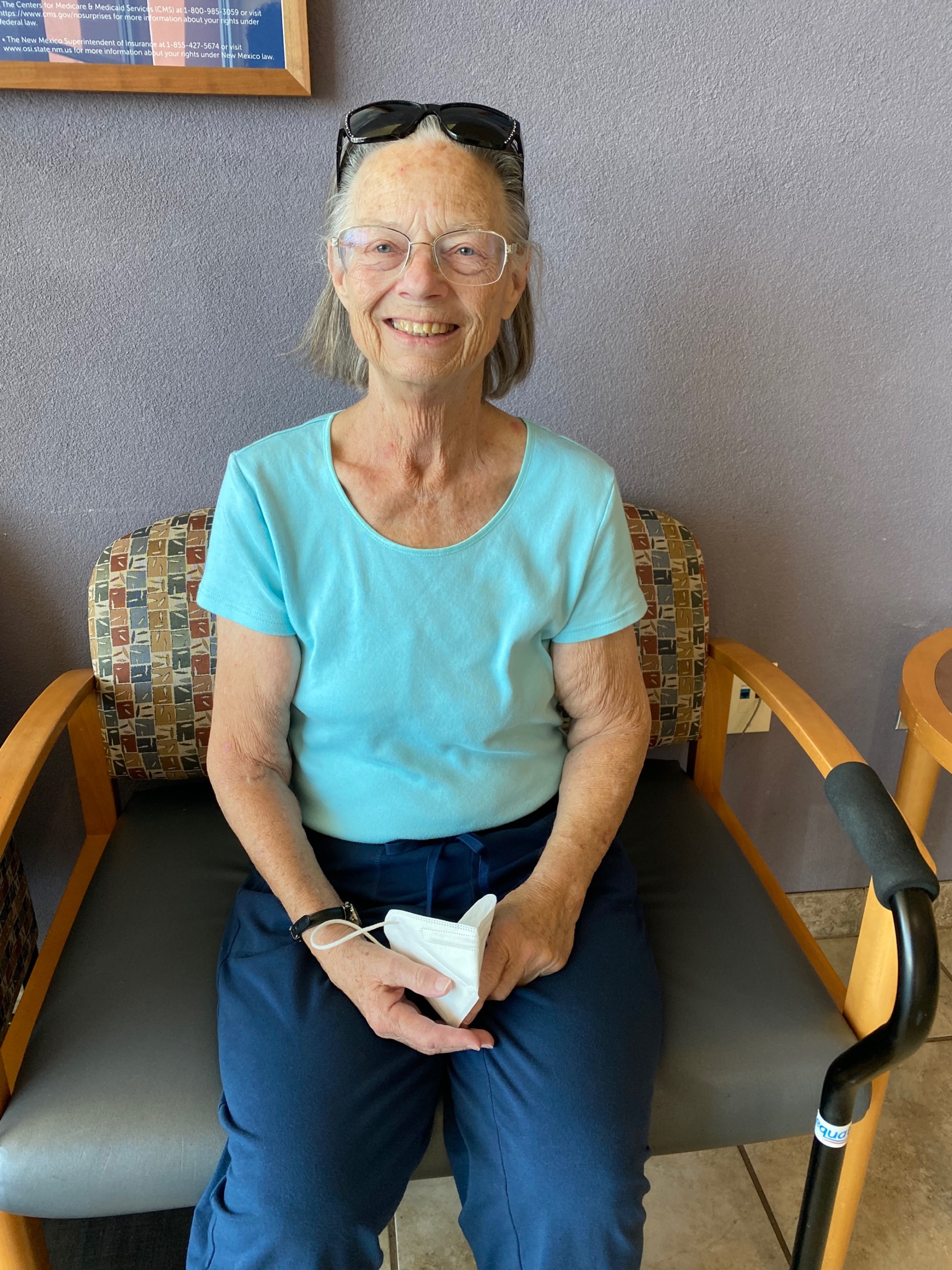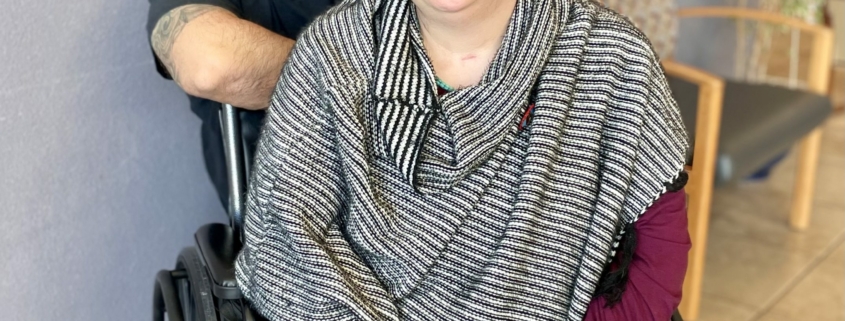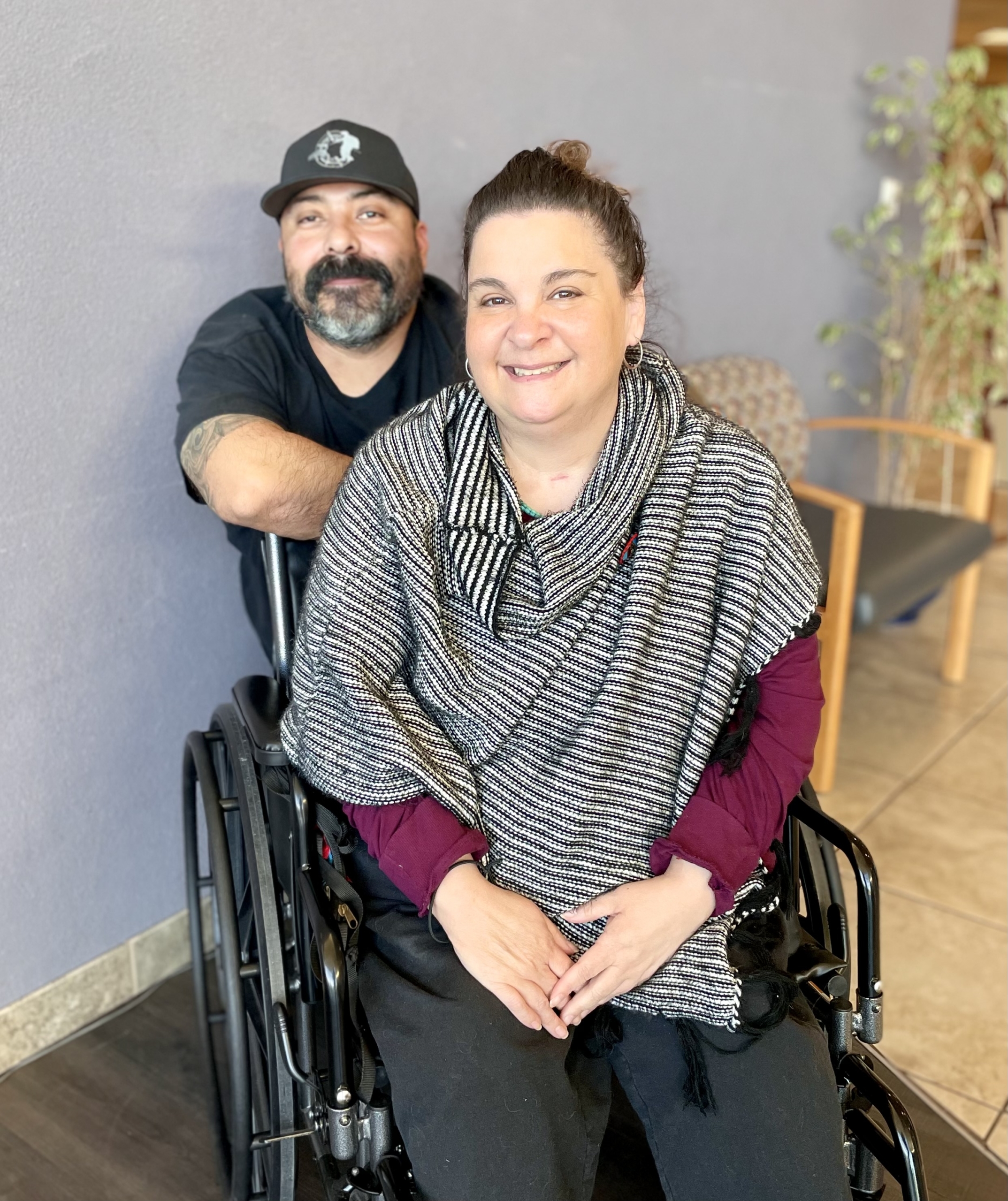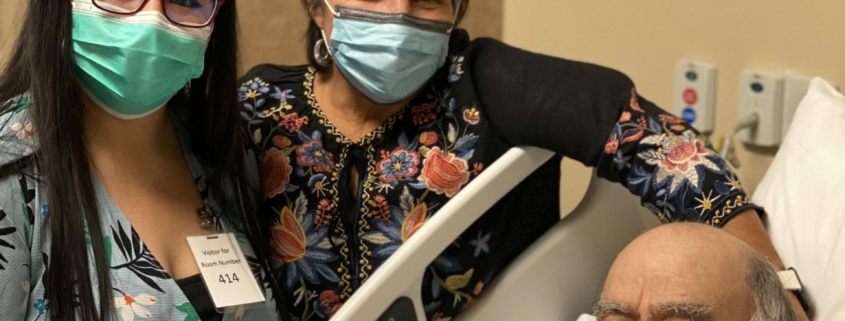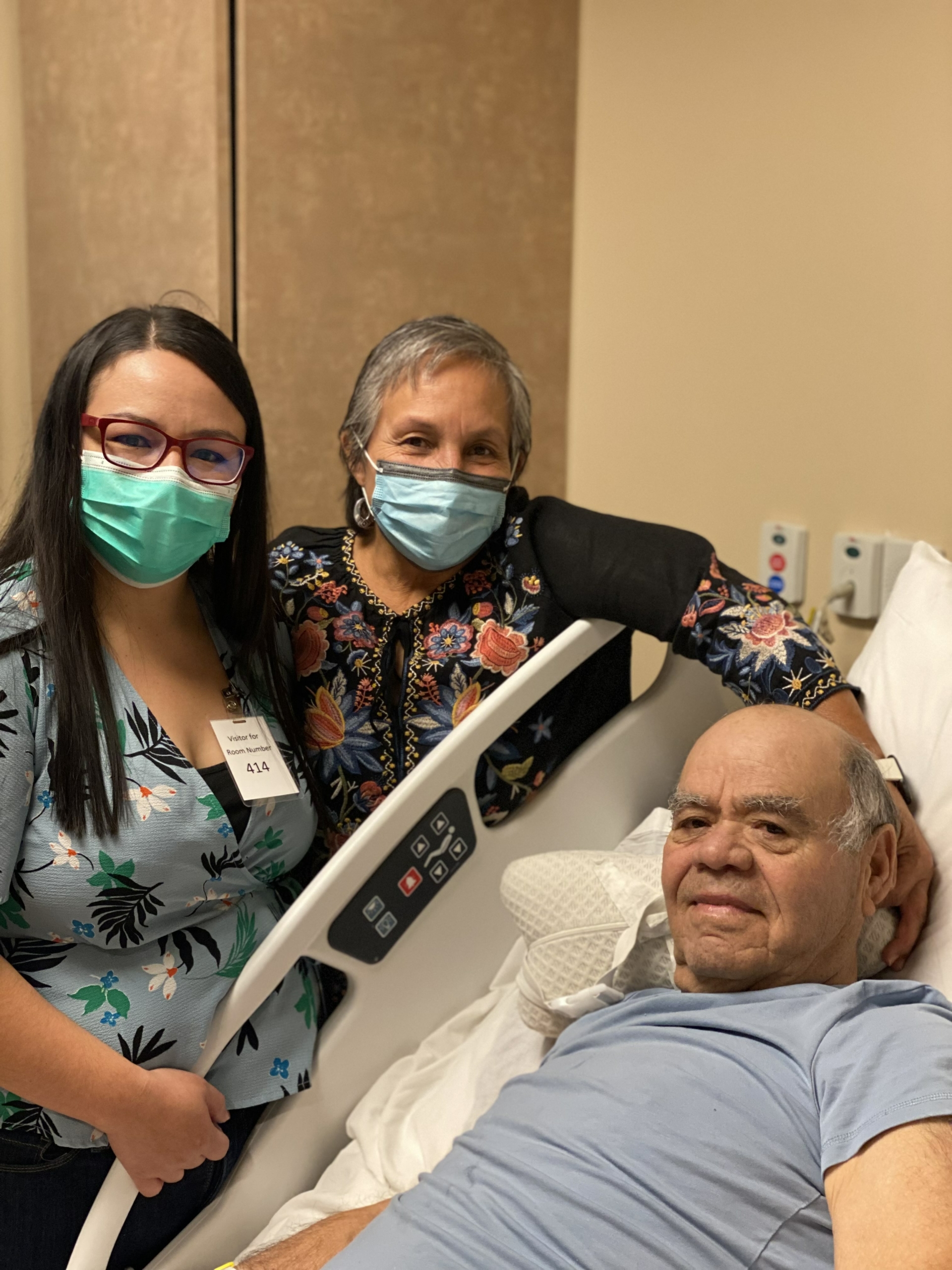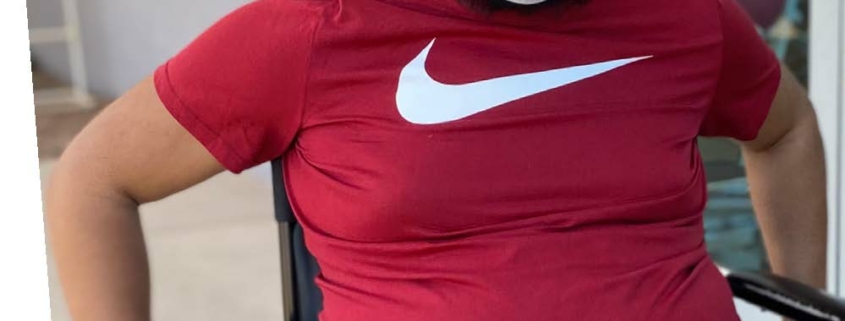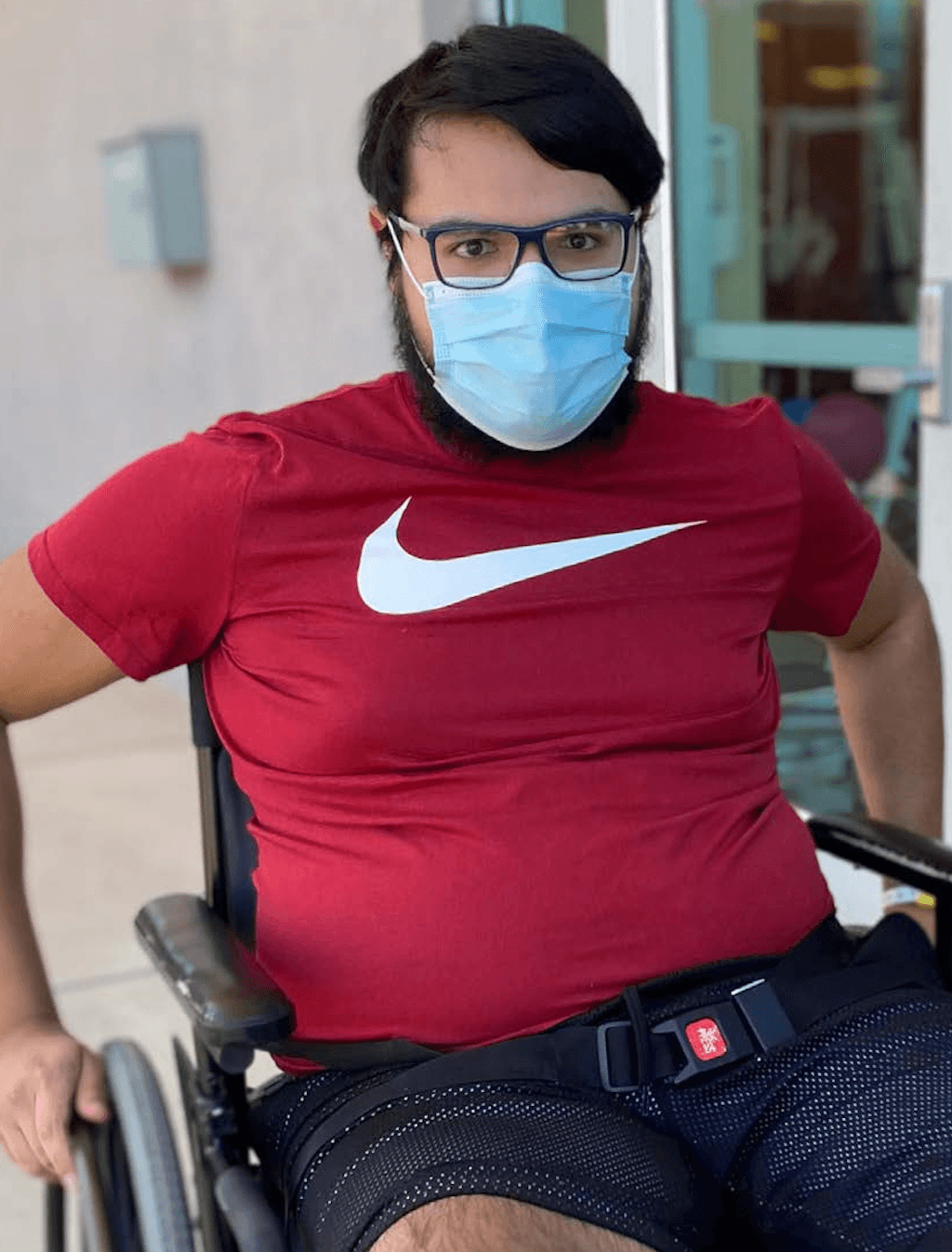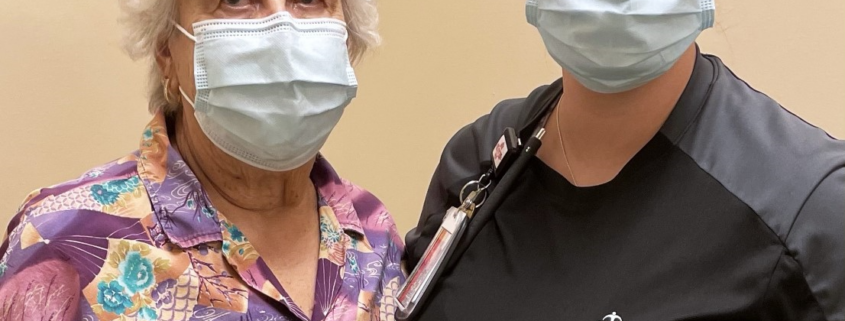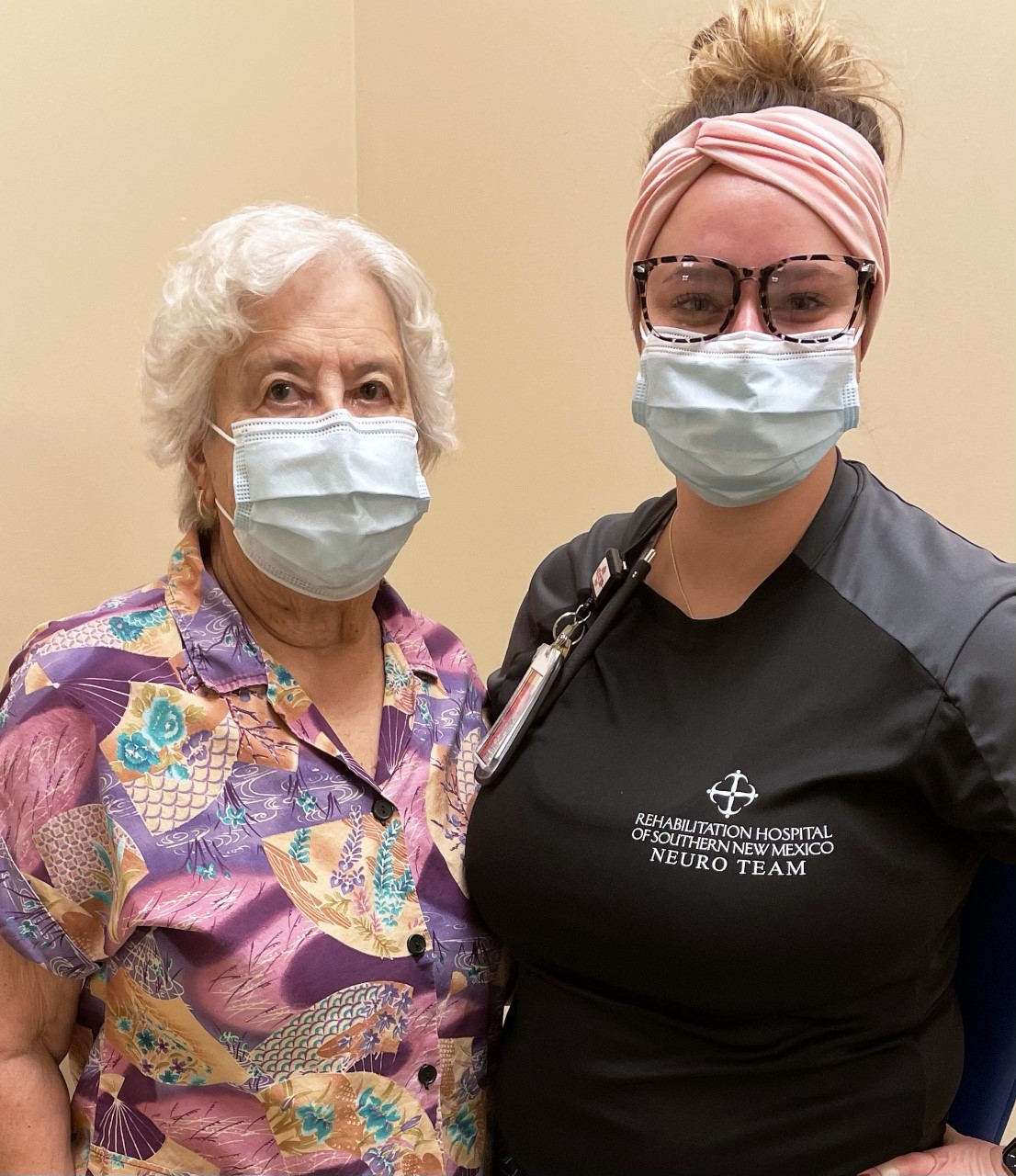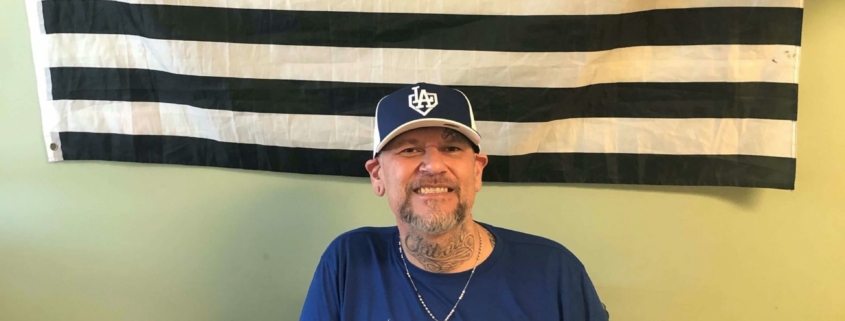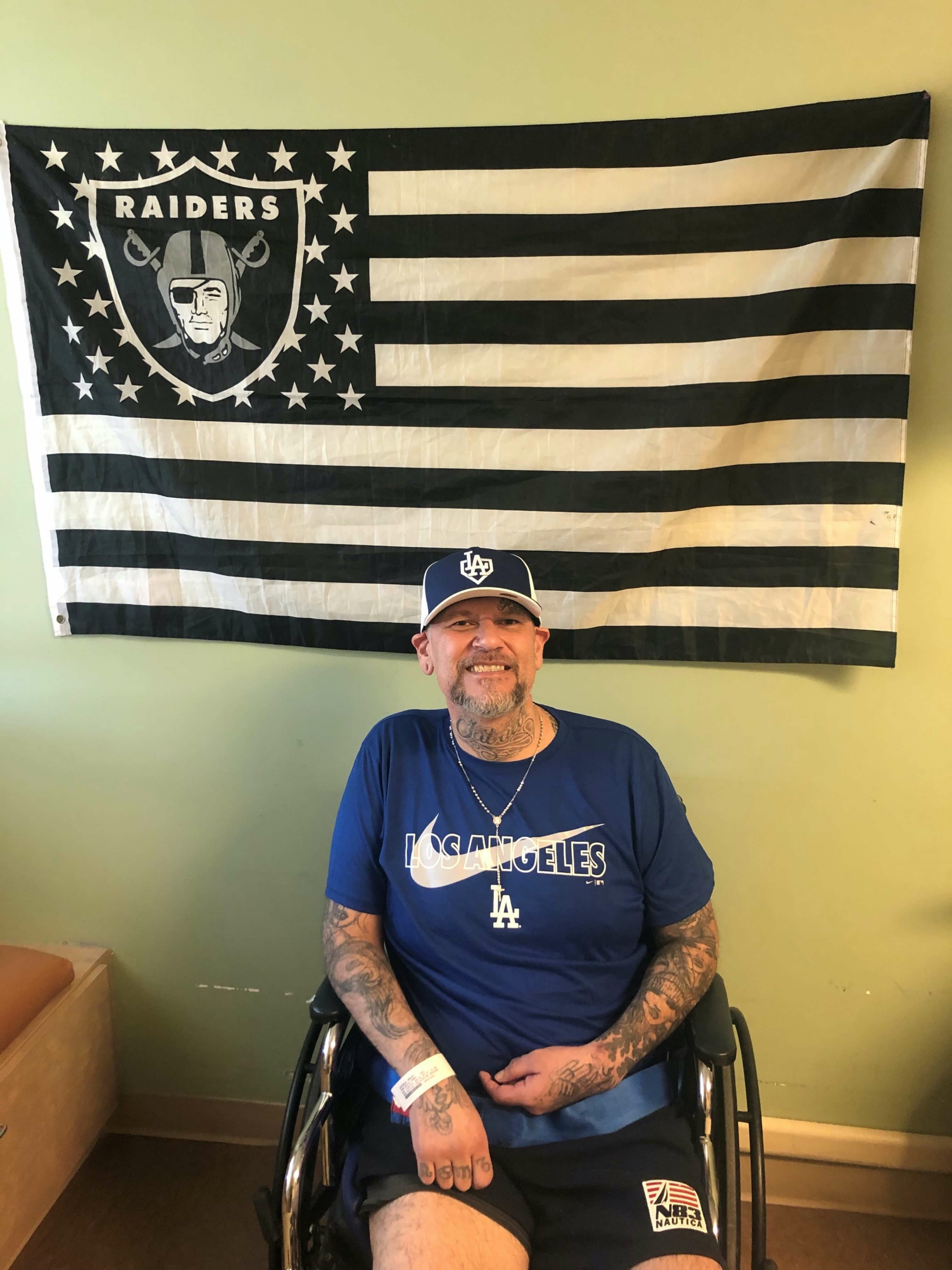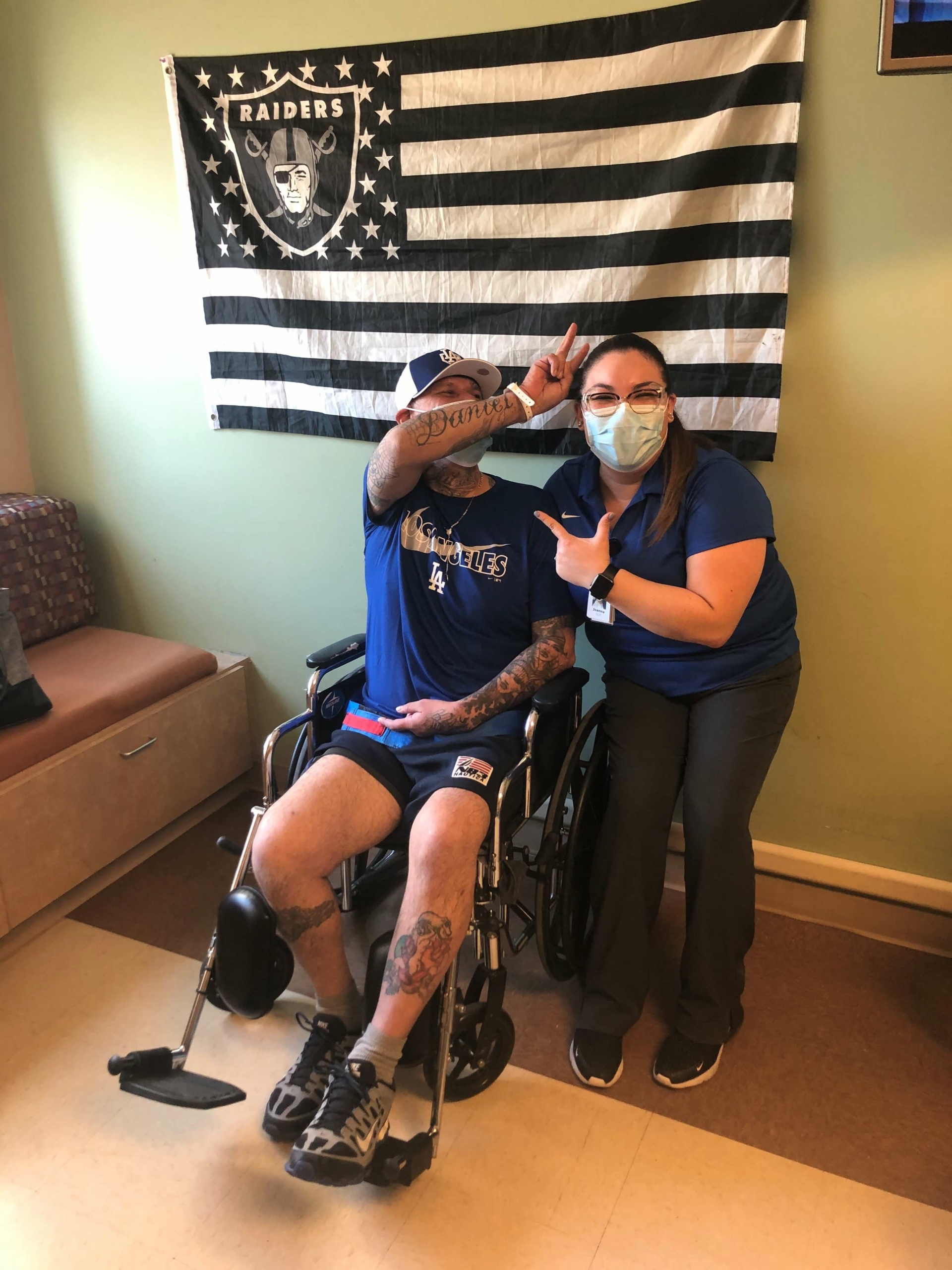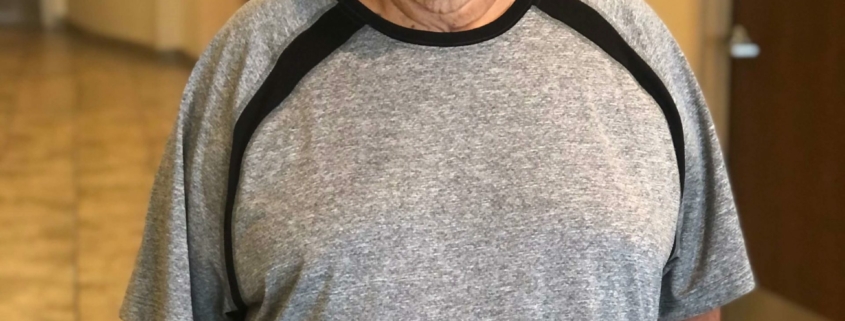In November 2008, his life took an unexpected turn when he started experiencing numbness in his legs and difficulty with balance. After being referred to a neurosurgeon for tests, several lesions were found throughout his body…
Before arriving at Rehabilitation Hospital of Southern New Mexico, Luis Yanez had been bedbound for 13 months. He could not walk or perform basic activities of daily living. In addition, due to his decline in overall function, he could not attend his chemotherapy appointments. So Luis sought the help of the experts at RHSNM to regain his function and independence.
Luis worked extremely hard with the therapy team at RHSNM, remaining focused on getting his life back. Unfortunately, while he made significant progress with physical therapy, some weakness and preexisting knee pain remained. The biggest barrier to returning home was the stairs that Luis would have to ascend and descend at his residence.
Read more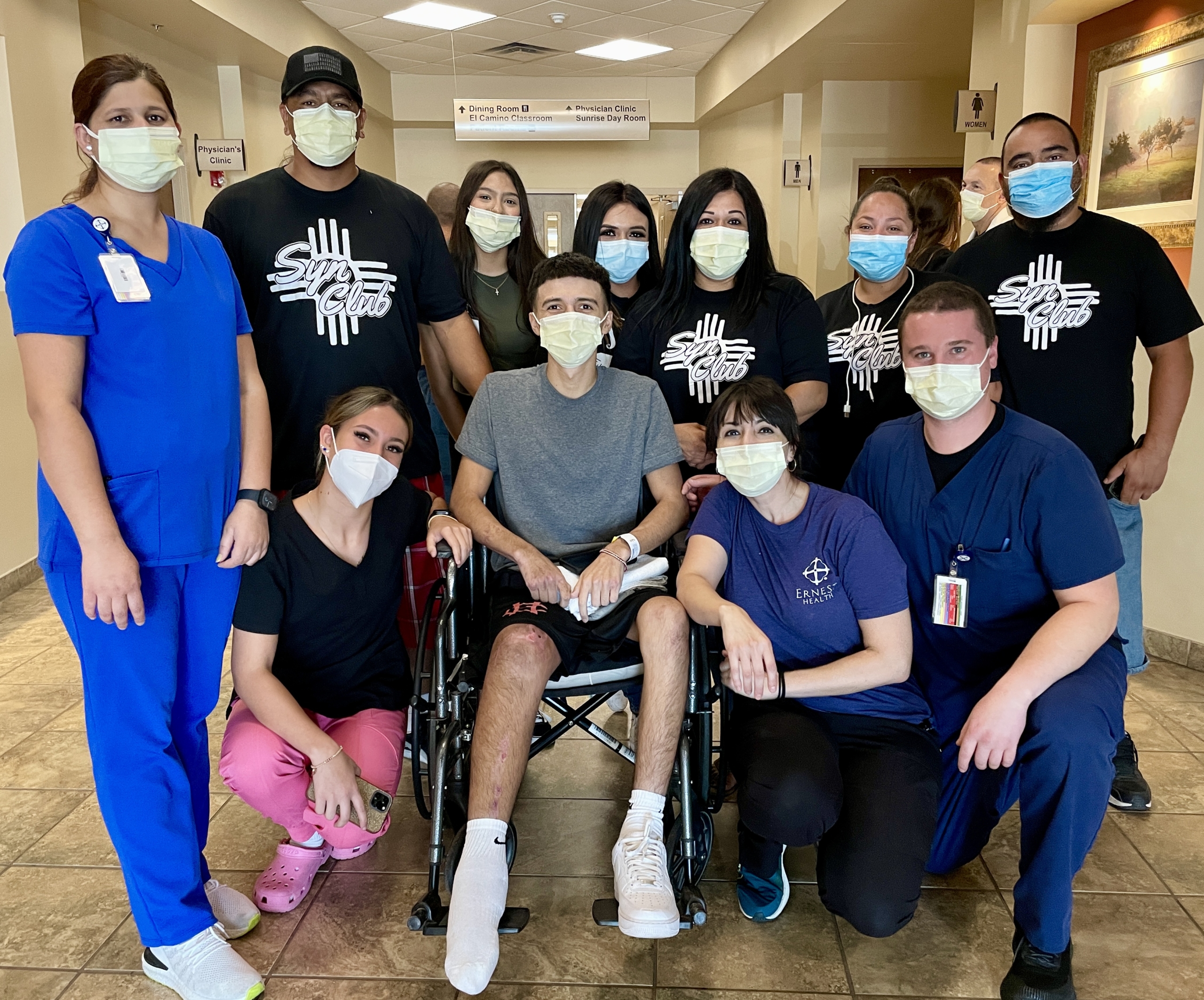
That Tuesday started like any other for Damian Meza. At 5:30 am, he got on his motorcycle and left for work. But Damian never got to his job because an oncoming car cut off his bike.
Two days later, Damian woke up in the hospital, remembering nothing and experiencing extreme back pain. But he woke up. That fact was huge for Damian’s family, who counted the days, hours, minutes, and seconds to see his eyes again.
Though this was leaps and bounds of progress, the lifelong injuries Damian sustained in the accident would drastically change his way of life. Damian suffered a spinal cord injury, among other traumatic injuries, in the crash. Nurses told Damian that he would spend the rest of his life with paraplegia and no hope of moving his lower limbs again.
This news crushed Damian. As an avid car lover and racer, how could Damian ever do what he loves again without the use of his legs?
Read moreThe night Marilyn Watson had a stroke seemed like any other. Marilyn and her daughter were grocery shopping at the local Walmart, as they had done so many times before. Marilyn had a faint dizzy spell but shook it off and continued down the aisle. A second one followed, but again, she brushed it off. They finished shopping and headed home.
The following day, Marilyn woke unable to move her right arm, which quickly progressed to her entire right side. Marilyn’s daughter rushed her to the emergency room, where tests revealed that Marilyn had a stroke.
The diagnosis left Marilyn with many thoughts. “How could I have had a stroke?” she wondered. Marilyn was an avid reader, a retired music teacher, and a choir singer. She attends a book club at her church and just got a new apartment. “Why was this happening to me?” Marylin continued to ponder as she traded in her books for a hospital gown and wondered if she’d ever use her dominant right hand again.
Read moreOctober 4, 2021, is a day that will forever be ingrained in the Hinojosa family’s minds and hearts.
Feeling a bit unwell, Vanessa Amaro Hinojosa thought she simply had the common cold. But things rapidly turned for the worst. In what seemed like an instant, Vanessa was admitted to the hospital, intubated, and sedated. She had contracted COVID-19, and like thousands of others, Vanessa had no idea if she would ever leave the bed again, let alone live.
Before COVID, Vanessa enjoyed life as a stay-at-home wife and mother. She loved the outdoors, spending time with her family, her two favorite dogs, and cooking tacos. Basics like mopping the floors and doing the dishes were part of her everyday life. But after COVID, Vanessa couldn’t even walk, let alone stand.
Read moreManny Ybarra is a vibrant man who has a passion for the outdoors. He loves spending time with his family including his wife, four children, and six grandchildren. In March, Manny suffered a tragic accident on his tractor that resulted in a spinal cord injury. From that point on, his life was completely different.
Manny said, “Before the accident, I could do everything. I was a very strong man, worked a lot outdoors and on the tractor.” Unfortunately, the accident left him unable to walk or complete basic self-care tasks. Overcome with emotion, Manny began the long and difficult road to recovery.
For a while, Manny went back and forth between a nursing home and the hospital. Once he stabilized, he transferred to Rehabilitation Hospital of Southern New Mexico (RHSNM). His family heard great things about their spinal cord injury program. They were happy to have Manny closer to home working with a great care team.
Upon arrival at RHSNM, Manny began working with his care team right away. He explained, “I saw how hard the therapists and nurses worked, and I decided that I had to prove myself. I wasn’t going to waste their time or let my family down.” He said that during his time at RHSNM, everyone contributed to his morale and success. “Everyone from the doctors, patient techs, nurses, therapists, to the case managers, was absolutely amazing to me. My therapists pushed and encouraged me and made me believe in myself.”
Manny said he achieved his goals because of the support he received from the staff and his family. During his time at RHSNM, Manny improved his mobility and increased his independence. He looks forward to getting back to his hobbies like being outside with his dog, going camping and fishing, and spending time with his family. After 57 days of therapy, education, and a lot of hard work, Manny returned home surrounded by his loved ones.
My life before my injury was a great life. I studied at college, I went to the gym every day including holidays, and I went out with friends, my girlfriend and my family. This is what I liked to do the most—spend time with my family, my girlfriend and my daughter. I never tried alcohol, much less cigarettes.
On December 7th, I went to Juarez City to visit my mother and my brother. Around 8:30 pm, I decided to leave my mother’s to go home to my house in El Paso. When I went down the steps, I opened the door, turned my back, and heard a shot that in seconds I felt in my back. This made me turn my body and fall to the sidewalk. While my body fell, I saw a man walk towards me with a gun pointing at me and he shot me three more times. These shots damaged 8 vertebrae in my spine, perforated my two lungs, fractured two ribs, and a bullet remains in my left scapula.
We choose RHSNM because of their experience and certification in treating spinal cord injuries, as well as it’s experience in health care and knowledge. What influenced my recovery was always my family and the way the therapists made me feel while I was doing the exercises. There were many highlights of the staff members who had an impact of me. The one that had the most impact on my motivation was Arturo, COTA. In him, I found a friend who from the first day had the right words to motivate me to get excited for therapy. He was always looking for a way to make me feel confident and comfortable in all aspects. Every day he would make me smile. He always worked toward my goals and celebrated my progress. Without a doubt, he was the one that most impacted my motivation. On the other hand, Jacqueline, PT, made most of my progress. Her exercises and the way she used them was great. She always had ideas to improve my progress. Her way of being happy when I achieved something new was motivating and I felt certain that nothing bad would happen to me. And of course, Jaime. He always made me try something new, challenge myself, and made sure that I gave more than I could. He taught me different ways of being able to perform exercises and made therapy fun by making jokes.
My motivation to recover in addition to my family, my daughter and my girlfriend were three quotes, “the worst shame of a man is not knowing the limit of his body, ”you are not what you achieve, you are what you overcome” and the most important thing my mother told me, “if you do something, be the best at it.” These quotes were my greatest motivation to overcome and give my best in each therapy session. Success for me is to surpass myself and to achieve what I thought was unattainable.
Going forward, I’m excited to learn more about my capabilities and what I can achieve with my injury. My goals and future plans are to be as independent as possible, to do everything by myself, and to be more like I was before my injury.
In March of this year, Nellie’s life changed when she went to the ER after experiencing stroke-like symptoms. Doctors decided to fly her to another hospital for a higher level of care, where she successfully had a blood clot removed. After her surgery, Nellie’s physician recommended that she come to the Rehabilitation Hospital of Southern New Mexico (RHSNM) to begin therapy and to participate in the stroke program.
Nellie says that before her stroke she was very active and enjoyed cooking, cleaning and maintaining the household, and spending time with her family. She and her husband enjoyed traveling to places like Hawaii, Indiana, Arizona, and other states around the USA. So, her goals were clear for her time at RHSNM. Nellie wanted to, “Get better and go traveling.”
Upon her arrival at RHSNM, Nellie stated that she was experiencing significant difficulty communicating her thoughts, wants, and needs. After being assessed by her speech-language pathologist, it was determined that she was experiencing moderate anomic aphasia. She worked diligently throughout her stay and had daily speech, occupational, and physical therapy sessions. Nellie says, “My speech therapist and physical therapist have really kept me motivated and I wanted to get well. Everybody has been so nice and swell, they took care of me, especially my therapists. Of course, Emily Grandle, my speech-language pathologist is helping me a whole bunch”
Since beginning her therapy, Nellie said it has become much easier for her to participate in social settings and communicate. Nellie continues to experience word-finding difficulty, writing, and communicating more complex thoughts, but has now transitioned to outpatient therapy at RHSNM.
Nellie has returned to cooking, cleaning, and spending much-deserved time with her husband and family since returning home. She says that her neurologist has been very happy with her progress since starting therapy at RHSNM. Nellie also shares that she is very proud of herself and excited for the progress she will continue to make.
Before his brain injury, Isaac Zavala, a father of two, was an active guy. He worked at a chili plant as a machine operator and spent his free time with friends playing darts and shooting pool.
One morning, Isaac woke up with a massive headache and felt dizzy. When he tried to stand up, he fell and hit his head. Isaac had suffered a stroke and a serious brain injury. After an initial hospitalization, he was admitted to the Rehabilitation Hospital of Southern New Mexico to begin his recovery.
As with any recovery from a serious injury, there were tough days. But Isaac was inspired to push through the tough days by staff members like Joanna, his speech therapist. “She was always on me and motivated me. She would tell me to focus, scan to the left, and take my time.” He has worked hard to achieve his rehabilitation goals and wants to prove to everyone that he will walk again.
With a desire to pay it forward, Isaac has advice to share with others who have suffered a brain injury. “You gotta keep fighting your fight. Go to therapy and do your best every day. As hard as it is, think positive. Keep fighting because there is light at the end of the tunnel. At times it seems like you can’t accomplish your goals, but you can.”
Isaac’s stay at RHSNM involved not just therapy, but education, as well. He now knows the signs and symptoms of a stroke and will incorporate preventative measures into his routine. He continues to work on getting his old life back. For him, that starts with not taking the little things for granted like walking, going to the bathroom, and taking showers by himself.
“When you least expect it, you will look back and see how much progress you’ve made, and it’s shocking.” He views success as walking on his own again so he can take his kids to do their favorite activities like going to the beach.
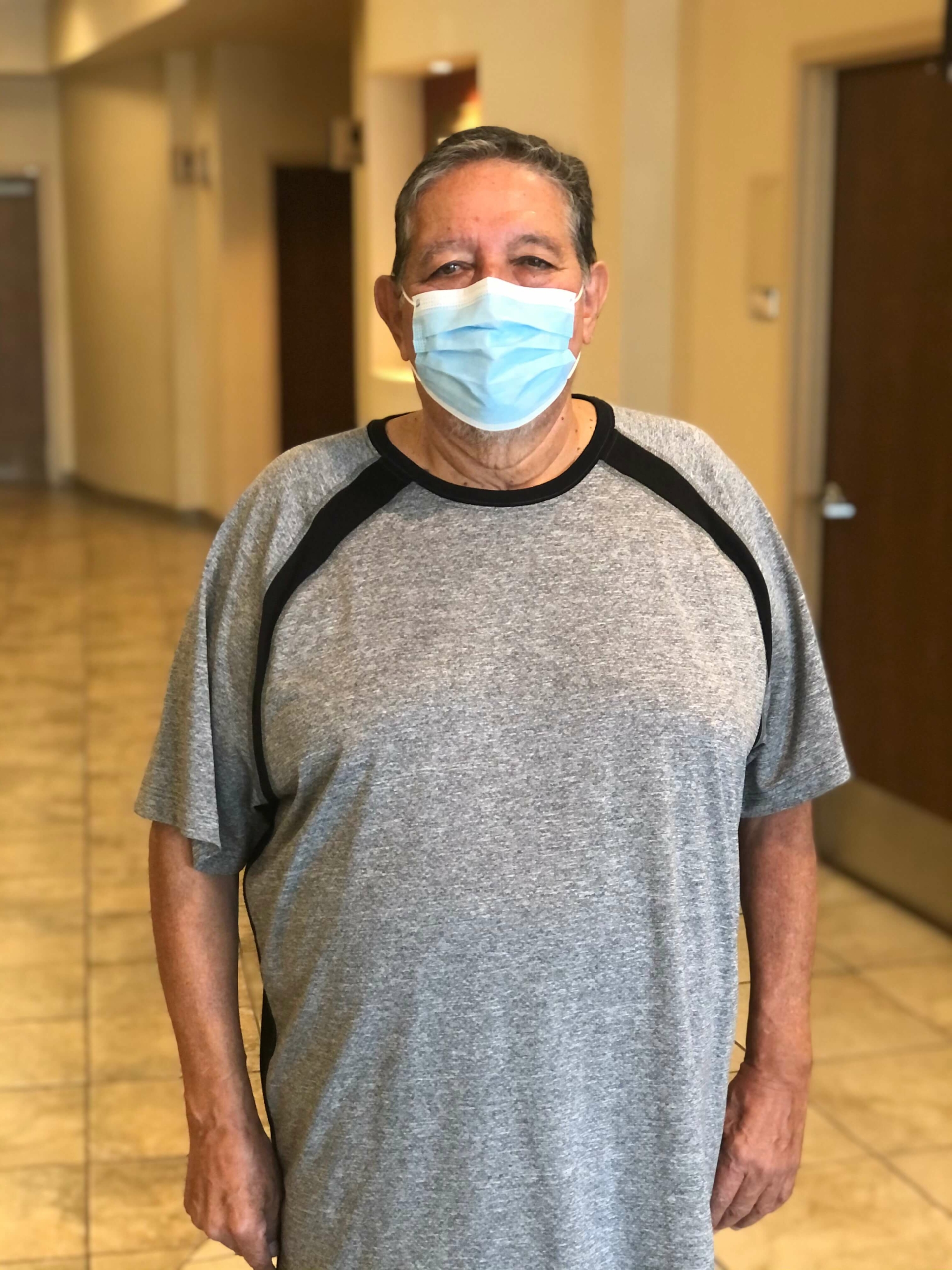
Ramon Segobia is a 68-year-old gentleman from Las Cruces, NM. He has lived an active and independent lifestyle with Irma, his wife of 50 years. Ramon loves to garden and spend time outdoors, hiking and fishing with his grandchildren. He also enjoys officiating high school sports such as football, basketball, and baseball.
Believing he was having a severe allergy attack one October day, Ramon went to the hospital. Tests revealed that the symptoms he experienced weren’t due to allergies, but COVID-19. Irma also tested positive for COVID-19. They were sent home with medications to rest and recover. Ramon’s symptoms worsened and he had to return to the hospital where he was placed on a ventilator. After almost a month in the hospital, Ramon received a tracheostomy and PEG tube for nutrition, remaining on the ventilator. Irma, meanwhile, was able to remain home and recovered well there.
In mid-November, Ramon was admitted to Advanced Care Hospital of Southern New Mexico (ACHSNM) to wean off of the ventilator and recover from the effects of COVID. When he arrived at ACHSNM, Ramon was completely dependent and had only awakened for the first time in almost a month. Ramon recalls being unable to move his left arm and leg when he first woke. He thought to himself that he had to do something to get better, so his family wouldn’t have to bear the burden of taking care of him forever.
With what he described as some “tough love” and the support of the ACHSNM staff, Ramon successfully weaned off the ventilator in just two weeks. He was decannulated two weeks after that. Soon after he passed his swallow study and gradually increased his ability to participate in therapy. He expressed his thankfulness for his occupational therapist, Nate, his nurses, Angelica, Alex, and Margarita, and his respiratory therapist, Rachel, who all pushed him to participate in his care and get stronger. After 37 days at ACHSNM, Ramon had progressed enough that he was ready to move to the next level of care where he could get even healthier, gain endurance, and prepare to go home.
Ramon was then admitted to the Rehabilitation Hospital of Southern New Mexico (RHSNM) in late December. At RHSNM, he quickly progressed with therapy and was able to tolerate a regular diet again. He says that his physical therapist, Brian, and his occupational therapist, Art, supported and pushed him to get moving quickly and motivated him to get better and get home. Ramon was successfully discharged home after only 15 days at RHSNM. He returned home to his wife, who thankfully had fully recovered herself, and began outpatient therapy at RHSNM in late January.
To this day, Ramon continues to improve with his mobility and endurance and says that he looks forward to getting healthier, losing more weight, and getting back to fishing with his grandchildren again very soon!
About Ernest Health
Rehabilitation Hospital of Southern New Mexico is part of Ernest Health, a network of rehabilitation and long-term acute care hospitals. Ernest Health hospitals see patients who are often recovering from disabilities caused by injuries or illnesses, or from chronic or complex medical conditions.Read More
Quick Reference Links
• Contact Us• Career Opportunities at this Hospital
• Price Transparency
• About Ernest Health

